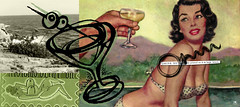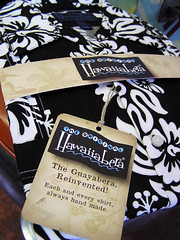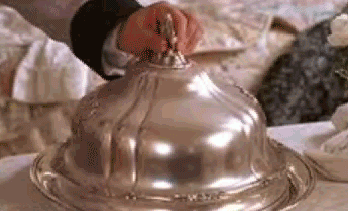RIP Jingles
With more and more pop songs selling products, the world of advertising is being turned upside down. The irresistible, singable, stick-in-your-mindable jingle is dead.
In 1929, a barbershop quartet in Minneapolis sang a song about breakfast cereal on the radio. So began the long, lucrative, endearing, and excruciating heyday of the jingle, when cheerful tunes about things for sale permanently lodged themselves in people's brains. Humming consumers would then go out and buy Rice-A-Roni, the San Francisco treat, or double their pleasure with Doublemint gum, or be a Pepper.
But the jingle, as anyone with a television knows, is a vanishing art form. It is too quaint, too corny, too oldschool for our ironic times. Naming your product in a commercial for your product is just tacky, say advertising executives. Modern pitchmen prefer pop songs that create a mood or spark an emotional association or conjure up some sort of vague but potent lifestyle-oriented craving that, if all goes as planned, attaches to a product and translates to a sale.
Which leaves the jingle writers scrambling to adapt to a world that has suddenly turned its back on their wares. How suddenly? Ten years ago Eric Korte, vice president and music director at the ad agency Saatchi & Saatchi, was commissioning original music for 90 percent of the company's campaigns. This year, more than half of his workload involves licensing published songs, and the trend is only gaining momentum.
“The jingle,” Korte says, “is dead.”
Of course there are exceptions. The Oscar Mayer wiener theme has been in constant rotation since 1963, and good money says everyone reading this newspaper can sing it start to finish. And jingles are still vital in local and regional markets. Notes Jon Aldrich, who teaches what he believes is the world's only jingle writing course at Berklee College of Music and pens jingles for K-B toys, Filene's, and Jordan's Furniture: "Everyone knows about Coca-Cola and McDonald's. They don't need ditties about their stuff. But Joe's Pizza Place needs to tell people where they are."
In New York and LA, however, music houses -- the companies that for decades have supplied the advertising industry with original music to accompany their national television and radio commercials -- are closing their doors in droves. Phil Ashley, cofounder of New York-based Rocket Music, folded his company in 2002. After creating jingles for Pepsi, Pizza Hut, Visa, Federal Express, KFC, and Gillette, Ashley says his decision was a simple matter of confronting reality. Demand for custom music was dwindling. Fees were plummeting. During his last few years in business, instead of composing original tunes, Ashley was rearranging "Route 66" for Johnny Rotten to sing in a Mountain Dew spot. Or not getting called at all.
"It's a cultural change. It's history moving on," says Ashley. "We're competing against a much larger pot of sources, and it just doesn't make sense to bang our heads against the wall. I know some people in my field are waiting for a better day. But I don't think it's likely to come."
For the shrinking circle of diehards, the business model has become downright Darwinian -- less a question of who's writing the stickiest song and more about who's able to adapt to the changing environment. Joey Levine is a former bubblegum-pop songwriter ("Sugar Sugar" and "Mony Mony" are his confections) who founded Crushing Music, the field's biggest commercial music house, in the late 1970s. Levine's first jingle was an inescapable Wheaties spot ("Too bad you didn't have your . . .") and over the next two decades he created indelible themes for the Peter Paul candy company ("Sometimes you feel like a nut"), Toyota ("You asked for it, you got it" and "Oh, what a feeling"), Budweiser ("This Bud's for you"), and Diet Coke ("Just for the taste of it").
Like Ashley, Levine found himself pouring more and more time into writing new arrangements for cover songs: Mike and the Mechanics' "All I Need Is a Miracle" for Verizon, for example, and the "Get Smart" theme for American Express. He realized he'd have to branch out even further and totally revamp the services he offered if he wanted to stay in business. So Levine accepted work penning themes and underscores for television programs.
"I'm a songwriter by trade, and I miss writing songs," Levine says. "Change is tough, but necessary, so you don't become obsolete. My business is significantly smaller. It's hard to survive. The record labels are music houses now."
The use of pop songs in advertising isn't new. What's changed is the willingness -- or more accurately, the eagerness -- of labels and artists to allow their material to be licensed for commercial purposes. Case in point: In the 1980s, Sting refused to allow the lyrics to the Police song "Don't Stand So Close to Me" to be used in a deodorant ad. In 2000, a major Jaguar campaign featured the rock star meditating in the back seat of an S-Type to the tune of his song "Desert Rose." That track had been released a year earlier on the album "Brand New Day," a sluggish seller that rocketed up the charts on the heels of the ad campaign.
Today, the stigma (of a musician being perceived as a sellout) and the once steep price tag attached to this collision of art and commerce have been vastly diminished -- fueled in large part by years of mounting losses in the recording industry.
"Once upon a time [selling a song to an advertiser] was a pact with the devil," says Gregory Grene, music producer at Foote Cone & Belding, whose clients include Hilton, Kraft, Taco Bell, and Diet Coke. "Now totally legitimate artists are thrilled to perform mini-concerts for ad people. The whole paradigm has shifted. The labels have no money to promote music. They're the driving force behind this."
Indeed. Desperate for alternative promotional and revenue sources, the major record labels have quietly established marketing units that exist exclusively to reach out to potential advertising partners. Keith D'Arcy was hired by Sony/BMG in April to pitch recordings from the company's catalog and respond to the needs of ad agencies searching for music. He's one of 33 employees at Sony/BMG who work with advertisers.
"We're creative experts that are on call to the ad community," says D'Arcy. "Eric Korte [at Saatchi] can call me with a concept and within three hours I'll have a compilation of songs to upload for him. It used to be that only big songs got licensed, but now even the major labels are paying attention to the opportunity that's created by having a new band in a cool ad."
And yet, Darcy concedes, one of the key things that's been sacrificed in the glut of pop music licensing is the most basic of advertising goals: product branding. Familiar songs may evoke an emotional response -- targeting baby boomers with classic rock tunes has been especially popular in recent years, with Led Zeppelin's "Rock 'n' Roll" careening through Cadillac commercials and the Rolling Stones singing "Start Me Up" for Microsoft. But there's rarely an explicit association between the song and the product being pitched, and that can cut both ways.
On the one hand, companies are increasingly looking at unorthodox ways of reaching a generation of young, sophisticated consumers who are turned off by traditional advertising -- which accounts for the recent collaboration between mainstream retailer Kmart and the cutting-edge Danish garage rock band the Raveonettes.
"You're trying to create a club for people who don't want to join clubs," says Ron Lawner, CEO of Boston-based Arnold Advertising, whose 1999 VW campaign using British singer-songwriter Nick Drake's "Pink Moon" sparked a huge surge in the late artist's album sales. "We've moved on to messaging that includes more of your life than just the product."
But the connection -- like so many aspects of modern life -- is ephemeral. D'Arcy notes that advertisers are licensing songs for shorter and shorter periods of time, sometimes just a few weeks, and considering the speed at which modern culture moves and changes, the ad world's constantly shifting landscape of rock tunes makes a certain sense. One has to wonder if product loyalty is headed in the same direction: destined to become as fleeting as the shelf life of a pop song.
The bottom line is we're in a hurry. It takes much longer for a company to build equity -- adspeak for audience familiarity -- with an original jingle than a pop tune, which comes with an immediately captive audience. And in practical terms it takes much longer to write and produce an original piece of music -- which is roughly the equivalent of a horse and buggy in these days of instantly downloadable digital music files.
The future of the jingle looks bleak, but Levine isn't giving up. He's downsized Crushing Music from 10 staff writers to a revolving stable of freelancers who can crank out musical moods on demand, from abstract sound designs -- a few beats on a synth pad, a chorus of whooshes -- to faux Bowie. He's radically reduced his once-labyrinthian network of studios. And in what is perhaps the most telling nod to the jingle writer's decline, after nearly 30 years in business Levine is changing his company's name.
"Certain people have certain perceptions. If I put this under a new banner, and show you new people, some young lions, you never know," Levine says. "I might get hotter."
Thanks to Joan Anderman at the Boston Globe. She can be reached at anderman@globe.com


















